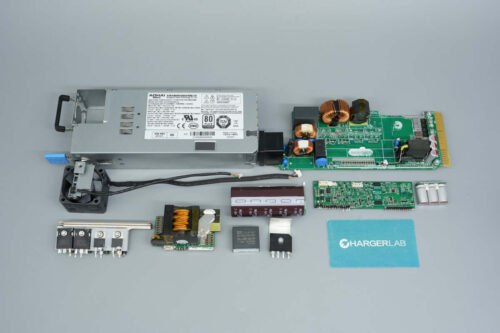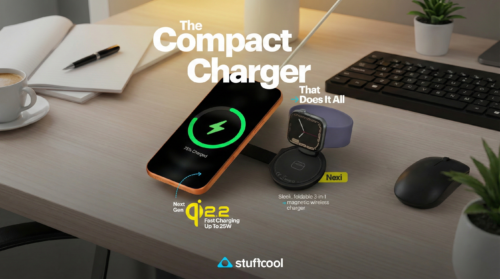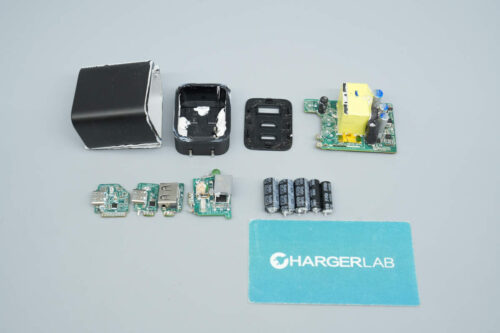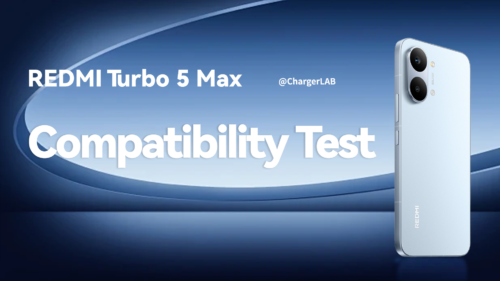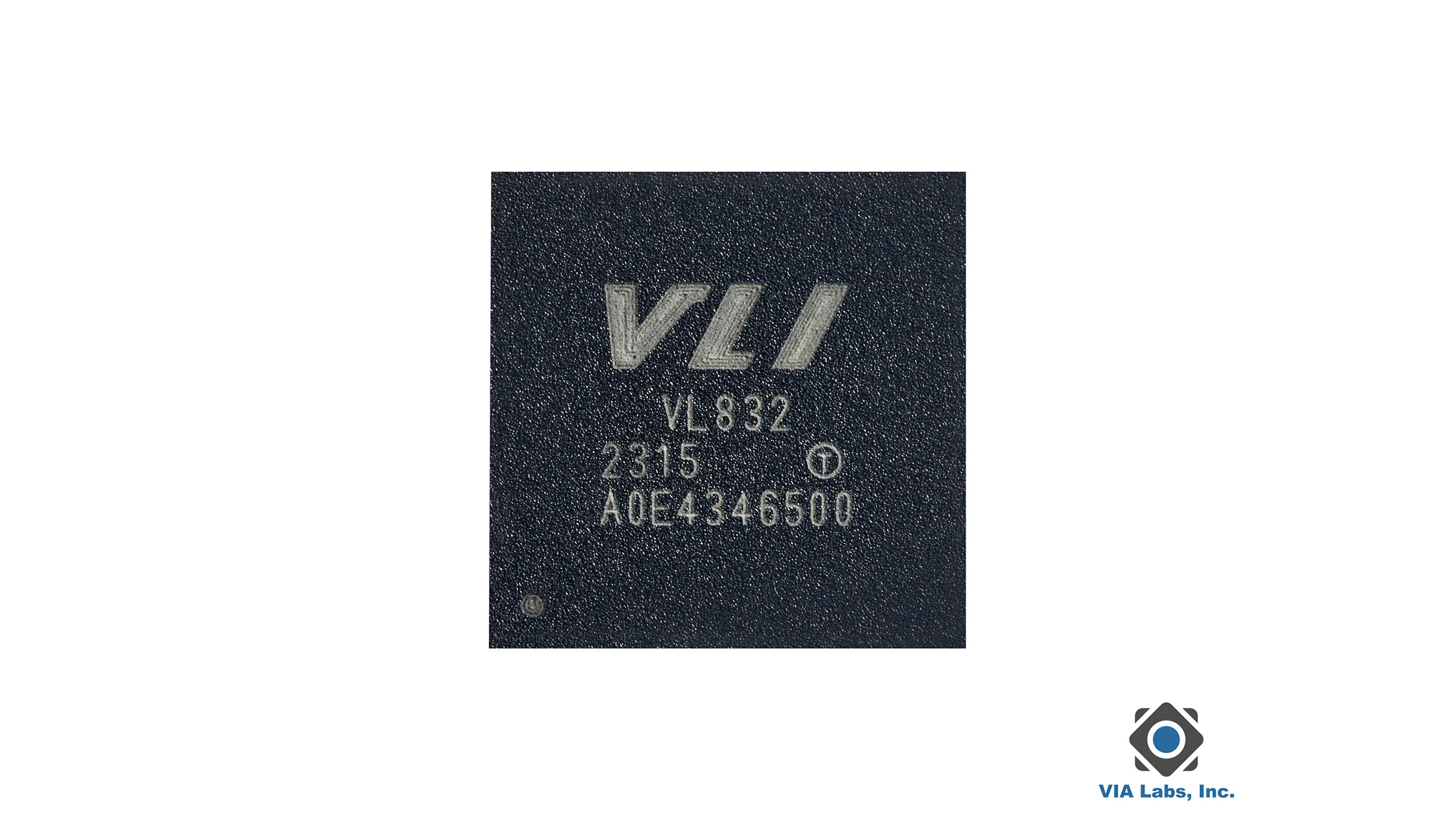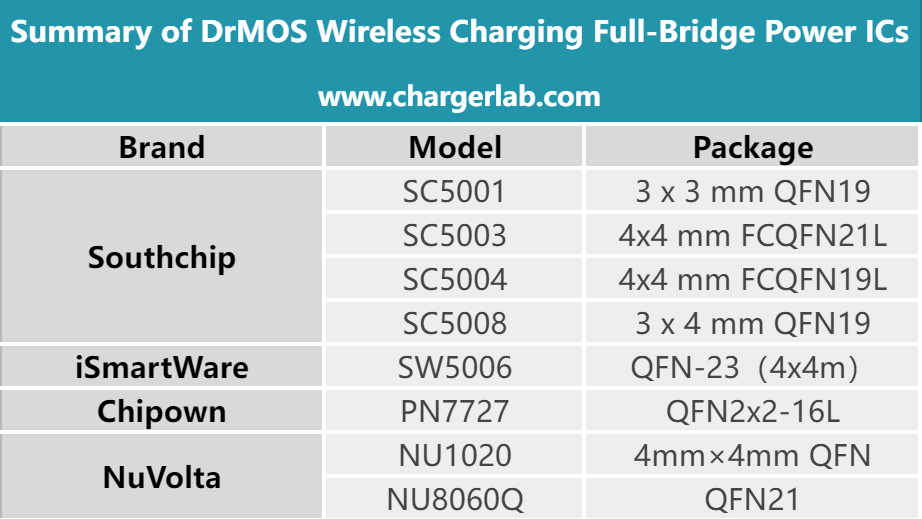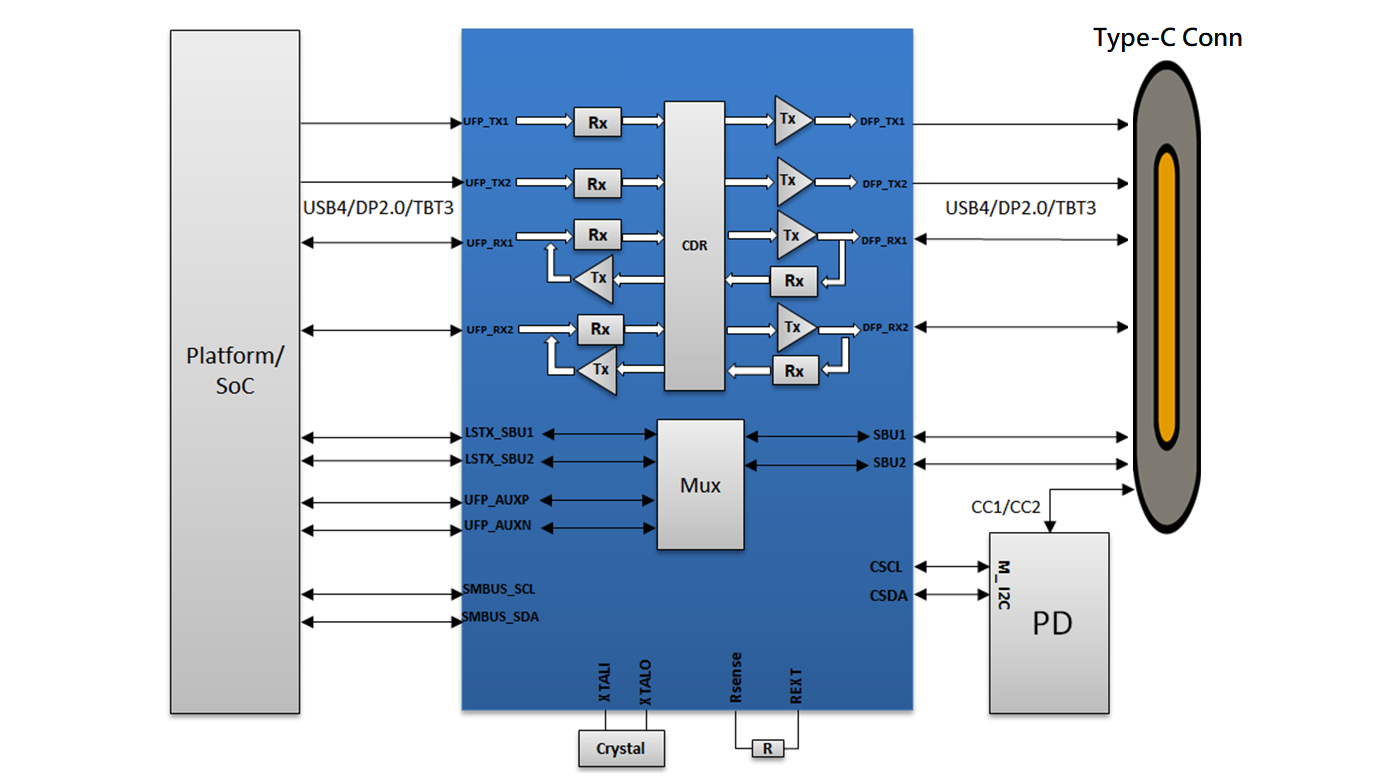Introduction
TPM (Trusted Platform Module) is an independent device capable of key generation, encryption, and decryption. It contains a dedicated processor and storage unit, enabling the storage of keys and feature data, providing encryption and security authentication services for products to ensure security during usage. The Trusted Platform Module is primarily used for anti-counterfeiting authentication, communication protection, and data protection. By encrypting and generating a key that can be stored in hardware, it ensures that the product can only be used when verified, thus protecting product security.
In everyday life, TPM has been widely applied in consumer, payment, transportation, and other fields, including bank cards, ID cards, social security cards, subway cards, bus cards, and even some smartphones. This helps safeguard personal information, financial data, and overall system integrity, contributing significantly to cybersecurity and privacy in our digital interactions.
Qi Standard Authentication Chip, initially introduced for authentication requirements in Qi 1.3 for certified wireless chargers, can be considered a form of Trusted Platform Module. It possesses diverse functionalities emphasizing security more than conventional MCUs, executing security algorithms in hardware, providing anti-counterfeiting authentication, communication protection, and key data protection features. With the gradual prevalence of the Qi2 standard, the application of authentication chips is further propelled.
What is Qi2 Wireless Charging Standard?
The latest Qi2 wireless charging standard from the WPC, optimized based on Apple's MagSafe, known as the Magnetic Power Profile (MPP) protocol, makes wireless charging more convenient and efficient for users, offering improved compatibility.
Qi2 certification requires products to include EPP and MPP transmitting areas and must incorporate authentication. Single BPP wireless chargers cannot receive Qi2 certification. In multi-in-one wireless chargers, they can include BPP, but they must include at least one EPP or MPP.
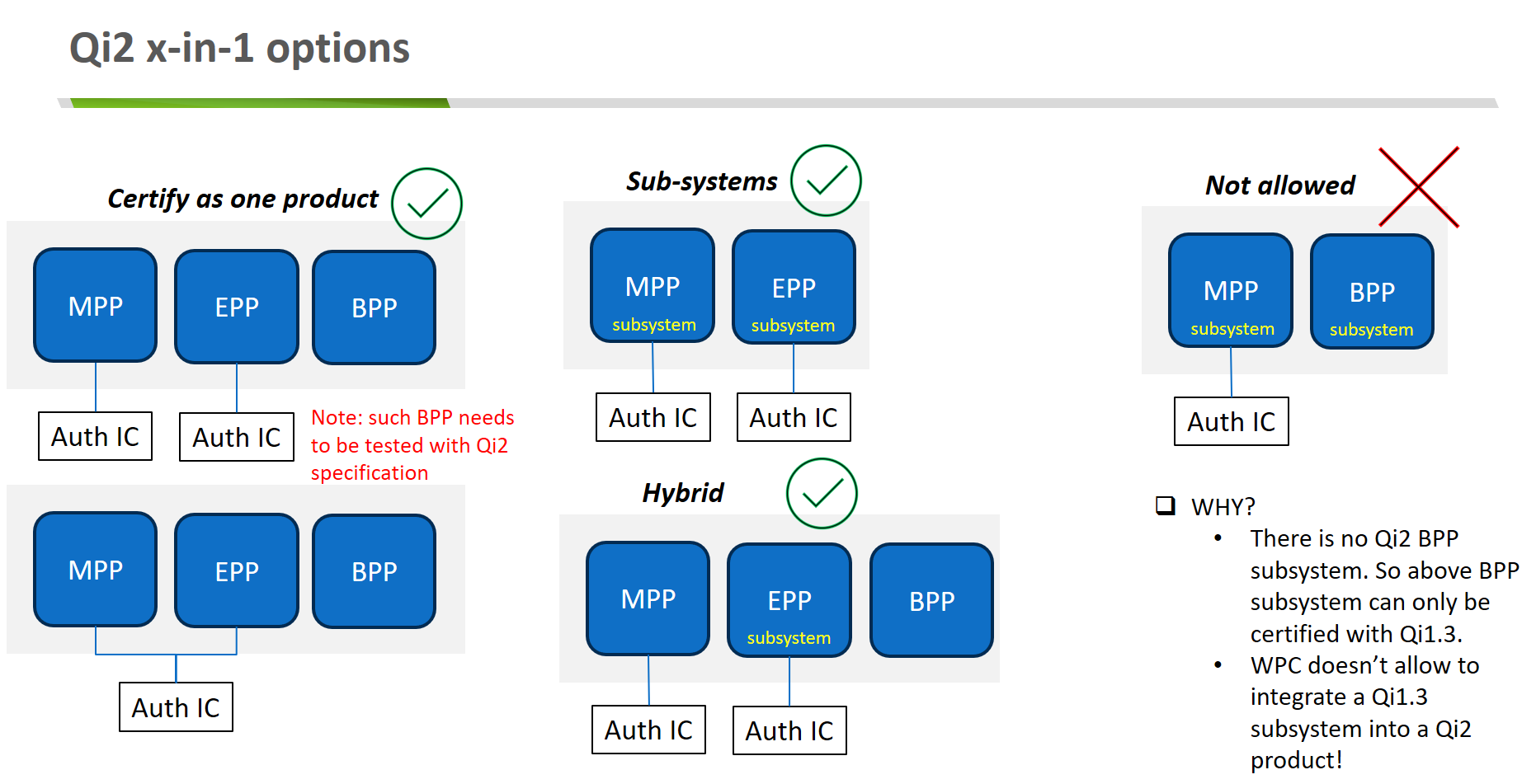
Qi2 certification must pass ATL verification, and there are currently 11 authorized labs in the WPC network. However, while Qi2 brings immense opportunities, it also presents higher technical requirements for wireless charging systems.
Why Use Authentication Chips for Qi2 Certification?
The release of the Qi2 standard rejuvenates the wireless charging market. Notably, Qi2 standard compels chargers to support highly secure authentication methods, meaning Qi2 chargers must embed an authentication chip. This not only safeguards the security and stability of the Qi2 standard but also to some extent assures the safety and quality of user Qi2 products.
Authentication chips, of course, require certification, and the certification process is complex. However, enterprises can opt for MCSP (Manufacturer CA Service Provider) to complete most stages of the certification process, reducing unnecessary hassle.
ChargerLAB has partially compiled four widely used Qi2 authentication chips currently prevalent in the market to assist products in obtaining Qi2 certification. The following list is in alphabetical order:
Fudan Micro
Fudan Micro FM1230
Fudan Micro FM1230 supports DES/TDES, AES, SM4 symmetric algorithms, RSA, ECC, SM2 asymmetric algorithms, SHA1, SHA224, SHA256, SM3 hash algorithms, among other protective capabilities. Additionally, it supports symmetric and asymmetric encryption/decryption operations, secure storage, identity authentication, among other functionalities.
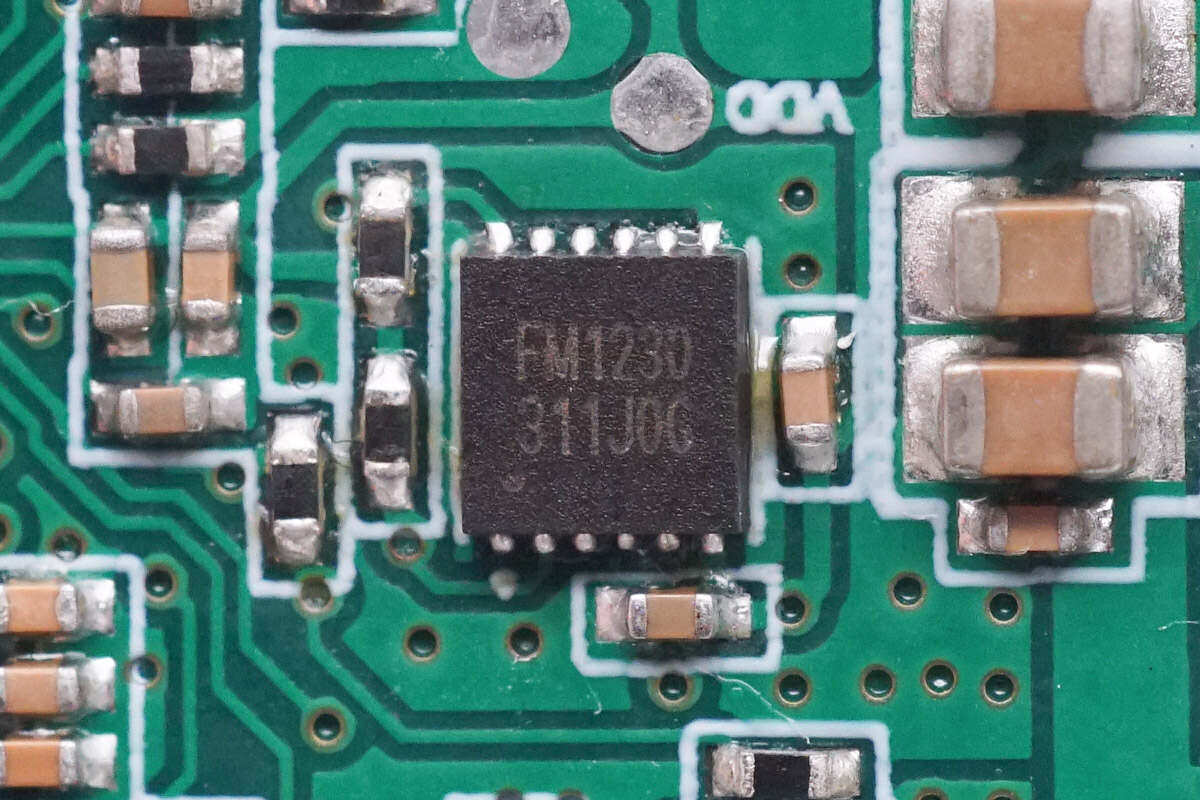
ChargerLAB encountered the Fudan Micro FM1230 during disassembly.
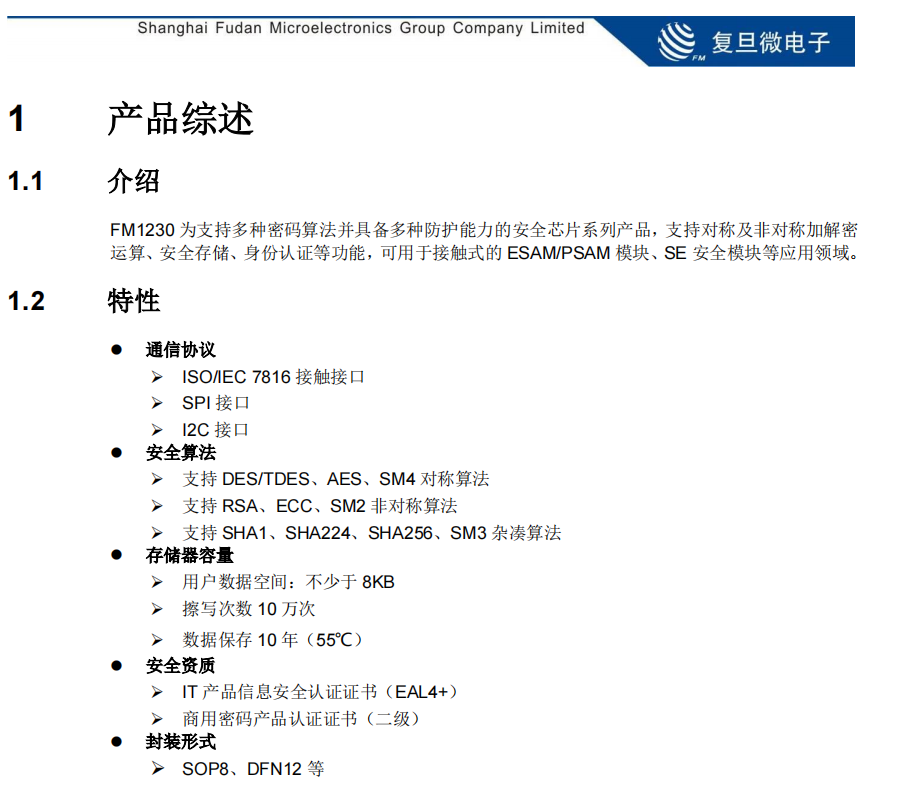
It provides SOP8 and DFN12 package to meet diverse system application requirements. Moreover, many Qi2 MPP wireless charging modules in the current market utilize this Trusted Platform Module.
Infineon
Authentication Chip OPTIGA™ Trust X
OPTIGA™ Trust X is based on an advanced security controller, employing ECDSA for mutual authentication and utilizing DTLS for secure communication. It incorporates tamper-resistant non-volatile memory for secure storage. Furthermore, it includes symmetric/asymmetric cipher engines supporting ECC 256, AES-128, and SHA-256, significantly enhancing system security.
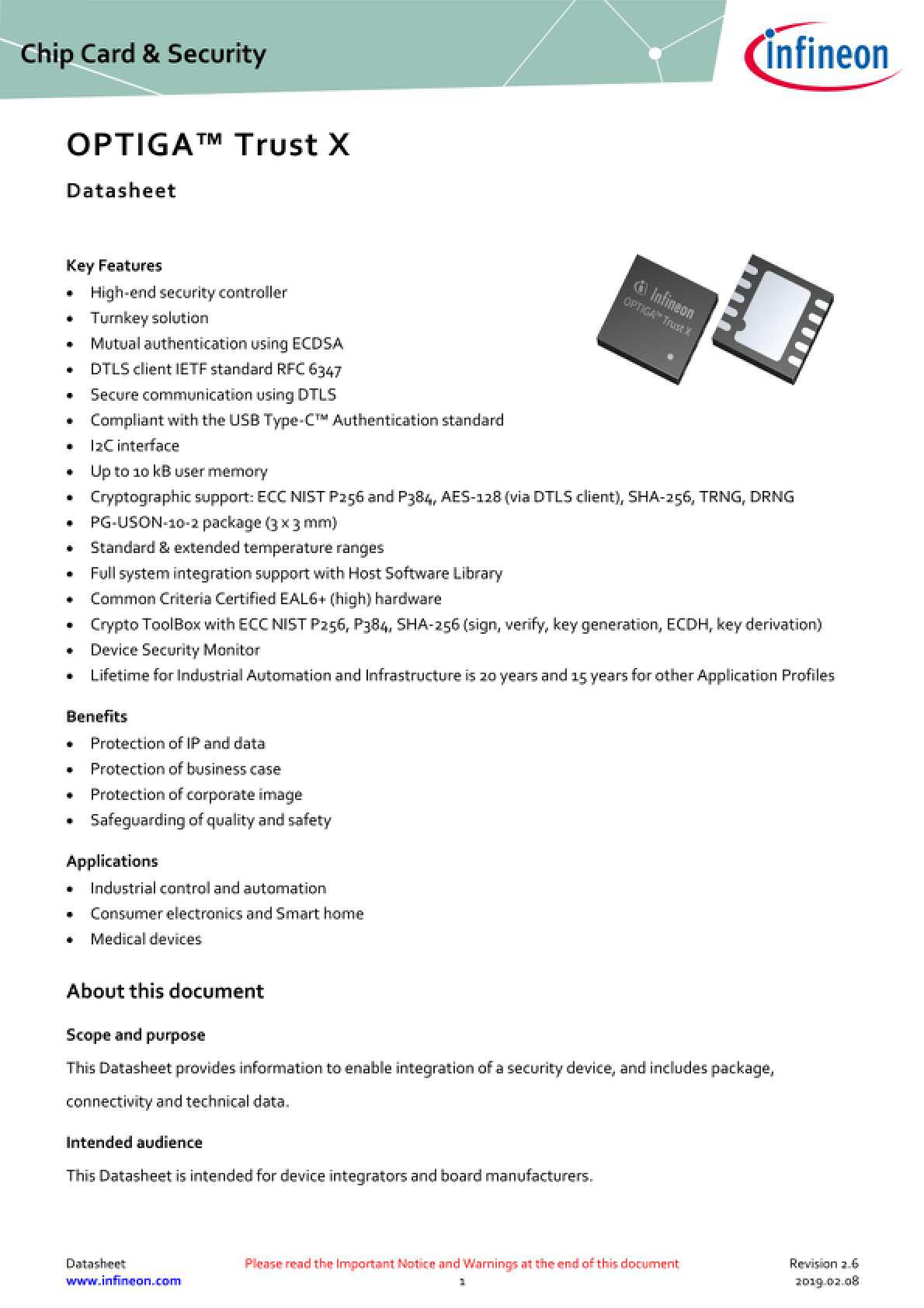
OPTIGA™ Trust X comes with pre-programmed OS/application code locks and includes a host-side module for easy integration with host microcontroller software. It operates within a temperature range of -40°C to +105°C, featuring standardized I²C interfaces and compact PG-USON-10-2 packaging, facilitating convenient integration into existing ecosystems.
STMicroelectronics
STSAFE-A110
STSAFE-A110 runs on the CC EAL5+ platform, a highly secure authentication solution certified by an independent third party. Its command set ensures robust device authentication capabilities, monitors device usage, assists nearby hosts in establishing transport layer security (TLS), and protects host platform integrity.
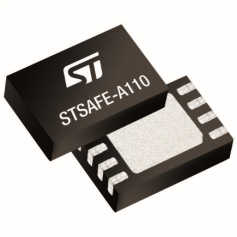
It features signature verification services, uses secure counters for monitoring, pairs with host application processors to establish TLS, encrypts and decrypts data with up to 16 keys, generates key pairs on the chip, comes preloaded with Sigfox™ or LoRaWAN® credentials, supports frame signing, verification, encryption, and decryption.
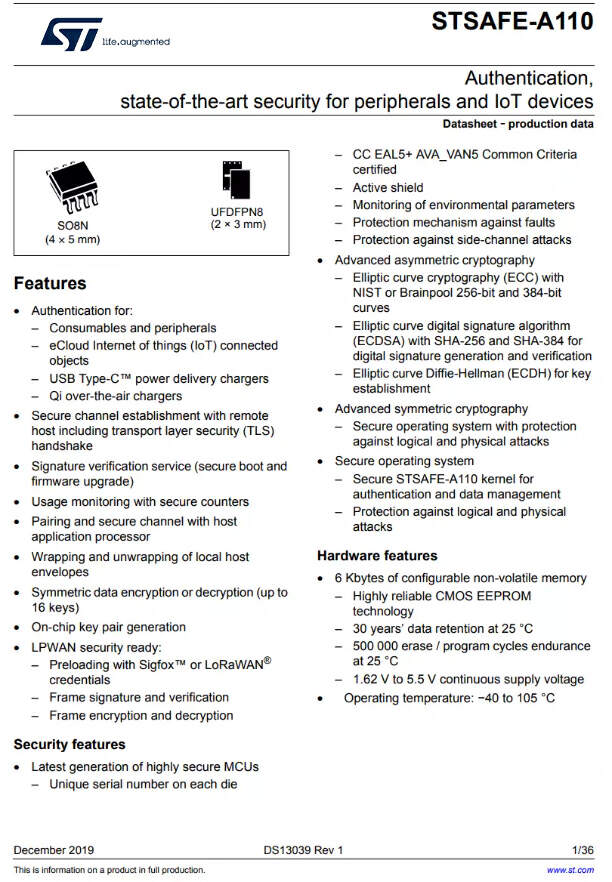
In terms of security, STSAFE-A110 integrates the latest generation highly secure MCU, each chip possessing a unique serial number, featuring functionalities like active shielding, monitoring environmental parameters, guarding against side-channel attacks, supporting advanced symmetric and asymmetric encryption. It utilizes NIST or Brainpool 256-bit and 384-bit elliptic curve encryption (ECC), SHA-256, and SHA-384 elliptic curve digital signature algorithms (ECDSA) for generating and verifying digital signatures, for authentication and data management, significantly enhancing security.
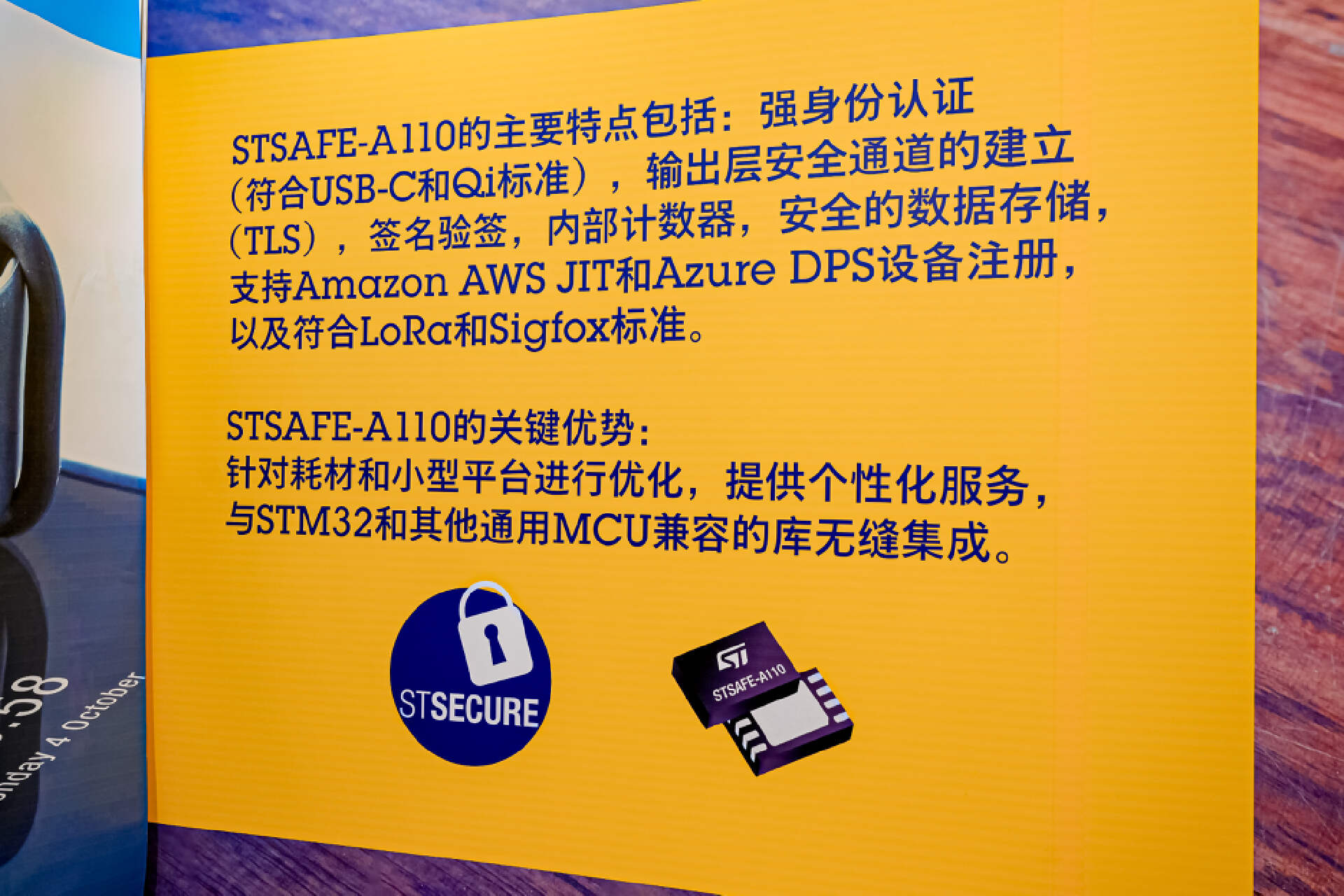
In terms of hardware, it also possesses highly reliable CMOS EEPROM technology, capable of preserving data for 30 years at 25℃, enduring 500,000 erase/program cycles, tolerating continuous supply voltages from 1.62V to 5.5V, and operating stably within the -40℃ to 105℃ temperature range.
Tsinghuaic
Tsinghuaic T9 Series Authentication Products
The Tsinghuaic T9 Series Authentication Products cover various specifications and different levels, including consumer, industrial, and automotive-grade products. Tsinghuaic aims to provide smaller, more integrated solutions to accommodate limited board-level space and resource requirements, especially suitable for consumer products.
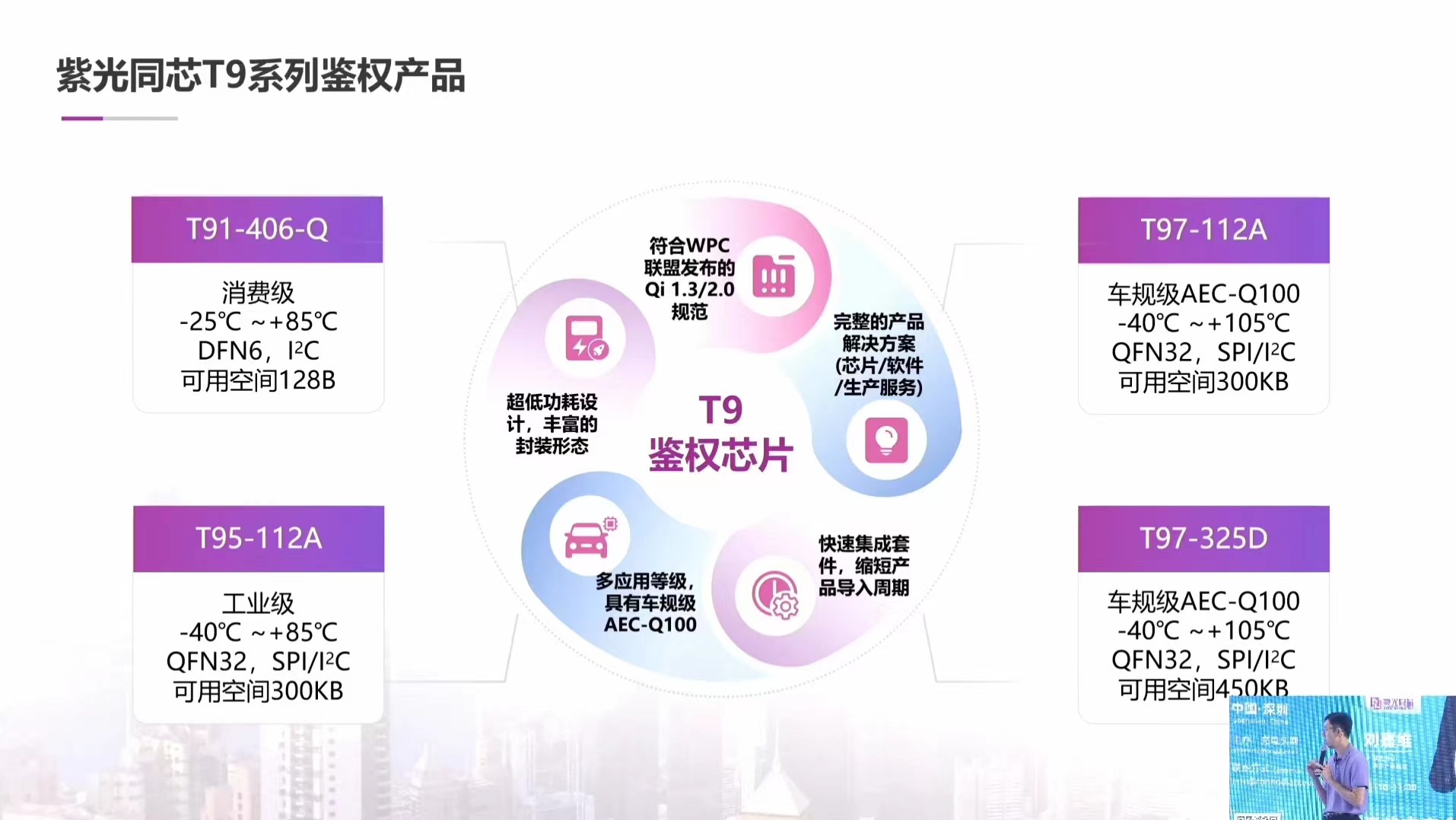
Tsinghuaic also offers high-reliability solutions for automotive wireless charging products, meeting AEC-Q100 certification requirements in the automotive industry. Additionally, their products possess more user customization space to meet different requirements. Whether it's for consumer, industrial, or automotive-grade products, they provide rapid integration kits, aiding manufacturers in shortening product introduction cycles.
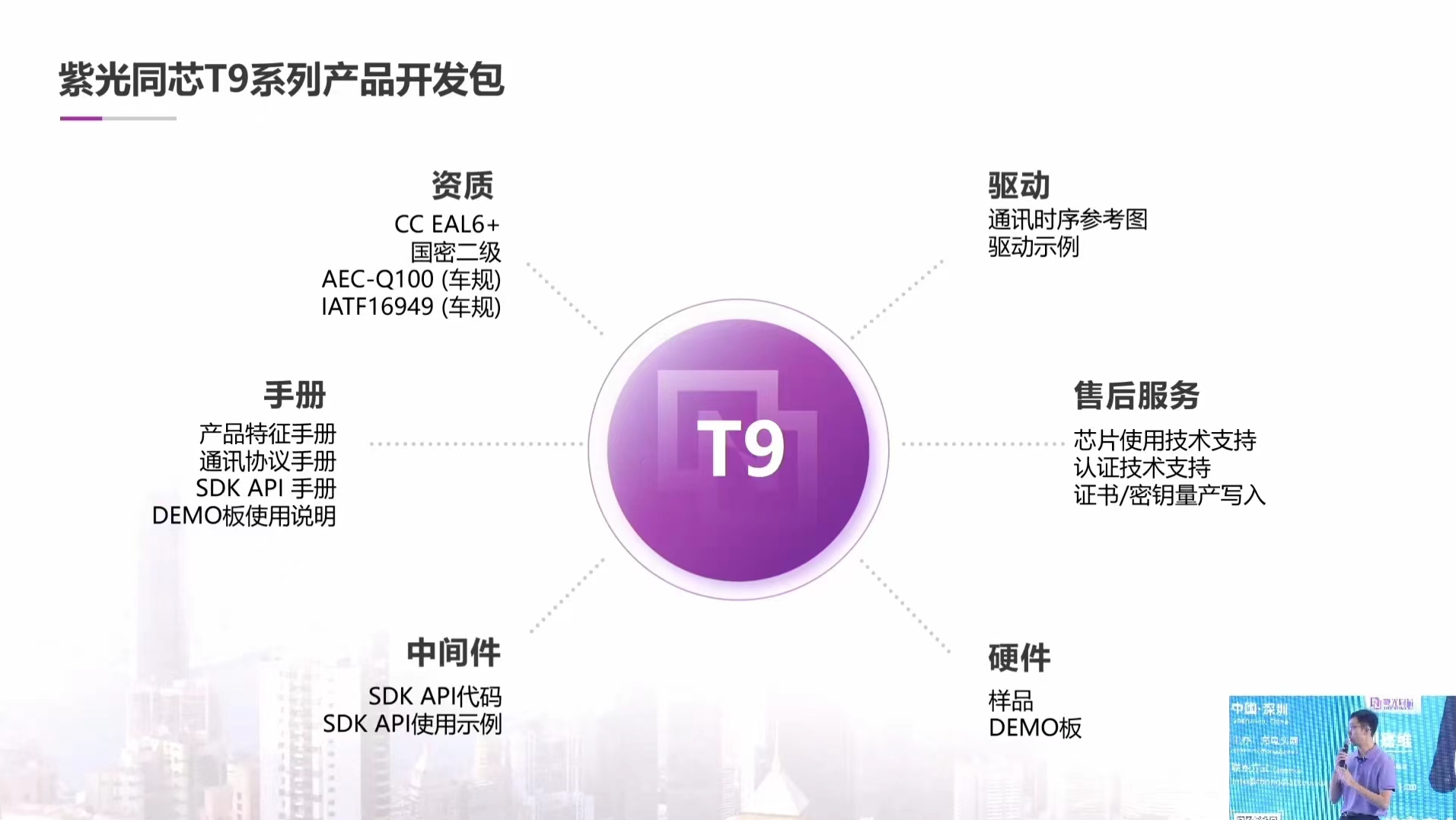
Tsinghuaic T9 Series product development kits offer several advantages. These kits meet WPC's qualification requirements and have passed WPC audits, becoming one of their MCSP suppliers.

Moreover, Tsinghuaic will provide detailed manuals to assist wireless charging manufacturers in understanding product characteristics and parameters. Once deciding to import Tsinghuaic's products, they will provide MCU-end middleware and debugging examples to aid customers in better product integration. Tsinghuaic also offers early DEMO and test versions for quick connection and testing. Once the DEMO board is manufactured, Tsinghuaic will provide samples with testing certificates, expediting the laboratory certification process.
Summary of ChargerLAB
Since the WPC initiated Soft-Launch certification test in November 2023, several wireless chip manufacturers have developed Qi2 MPP wireless charging modules. These modules require Qi2 authentication chips to ensure communication security between charging and receiving devices.
ChargerLAB aims to bridge the gap for electronic product enthusiasts and electronic engineers to understand the latest electronic technology trends. It has compiled four prevalent Qi2 authentication chips, believing this information can help individuals grasp detailed information and further drive the development of the wireless charging industry.
Related Articles:
1. For iPhone 15 | Ten Qi2 MPP Wireless Charging Modules and Their Eight Manufacturers
2. For iPhone 15 | ConvenientPower Launches Three Qi2 MPP Wireless Charging Modules
3. Southchip's Role in Qi2: Advancing Wireless Charging Module with MPP


